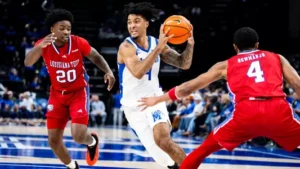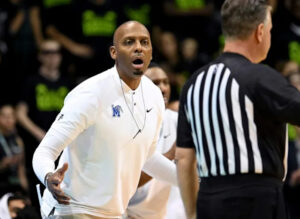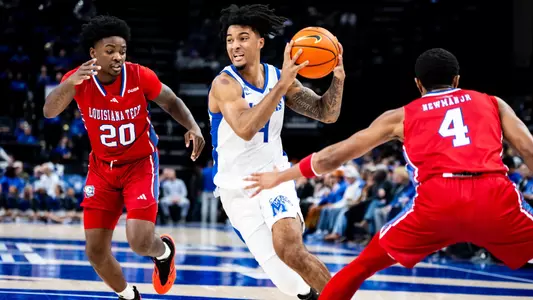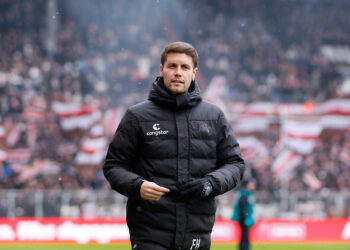‘This Means Everything’: Memphis and Louisville to Renew Epic College Hoops Rivalry
One of college basketball’s most storied and emotionally charged rivalries is making a long-awaited return. Memphis and Louisville—two programs with proud histories, passionate fan bases, and a shared past steeped in competition—are officially set to renew their rivalry on the hardwood. For many, especially longtime fans of both programs, this is more than just a game. It’s the revival of a tradition that shaped decades of college hoops.
The matchup, announced as part of the 2025–26 non-conference schedule, marks the first meeting between the schools since 2014, when conference realignment tore the rivalry apart. With Louisville moving to the ACC and Memphis remaining in the American Athletic Conference, what was once an annual battle suddenly vanished, leaving a void for fans and alumni alike. Now, more than a decade later, the return of this clash rekindles memories of fierce games, buzzer-beaters, and classic showdowns that helped define college basketball in the South and Midwest.

“This means everything,” said one Memphis fan on social media after the announcement. That sentiment echoed across both fanbases, who have long clamored for a return of the rivalry. It’s not just about wins and losses—it’s about history, identity, and bragging rights that span generations.
A Legacy of Fire and Fight
Memphis and Louisville first met on the court in 1949, and their rivalry hit its peak during their time together in Conference USA and the Metro Conference. The matchups were always intense—gritty, physical, and often emotional. They weren’t just basketball games; they were battles that brought out the best in both teams.
From the late 1970s through the 2000s, the rivalry featured legendary coaches like Denny Crum, Dana Kirk, John Calipari, and Rick Pitino. Star players such as Penny Hardaway, Rodney Carney, Reece Gaines, and Terrence Williams left their marks on unforgettable games. Louisville leads the all-time series 53–34, but Memphis has often played the spoiler, especially on their home court at the FedExForum.
Both programs have experienced highs and lows in recent years. Memphis, under head coach Penny Hardaway, has leaned heavily on young talent and high-profile recruiting classes to restore national relevance. Louisville, after enduring several turbulent seasons post-Pitino, is rebuilding under new leadership and aiming to return to the NCAA Tournament. Renewing this rivalry adds fuel to both efforts, giving each program a high-profile non-conference opponent and a boost in national attention.

More Than a Game
The significance of this rivalry goes beyond the court. Memphis and Louisville are both cities with rich basketball cultures and fanbases that live and breathe the sport. The games were always circled on calendars, whether they took place in Freedom Hall, the KFC Yum! Center, or the FedExForum. The return of this matchup offers not only a competitive boost but a cultural one. It’s a celebration of what makes college basketball special: passion, history, and community.
Television networks are already lining up to air the game in a primetime slot. Ticket demand is expected to be sky-high, with alumni from both schools eager to relive the tension and tradition of what was once one of the most heated rivalries in the sport.
It also presents an opportunity for younger players and fans to connect with a rivalry they may have only heard about. In an era of constantly shifting conferences and transient rosters, restoring long-standing rivalries like Memphis–Louisville injects authenticity and tradition back into the sport.
Looking Ahead
The upcoming renewal of the Memphis–Louisville rivalry is expected to be more than a one-off event. Talks are underway to turn it into a home-and-home series over the next several seasons, giving both programs a stable, high-stakes game to anchor their non-conference schedules.
As both teams continue to rebuild and push for national prominence, this rivalry could once again play a key role in shaping their identities. For coaches like Hardaway, it’s a chance to lean into the history and toughness that defined Memphis basketball. For Louisville, it’s an opportunity to reclaim pride and fire up a fanbase hungry for a return to relevance.
In the end, this rivalry’s return is a win for college basketball at large. It’s a nod to the past, a promise for the future, and most importantly, a reminder of why we watch, cheer, and care.
When Memphis and Louisville take the floor again, it won’t just be about a game. It’ll be about legacy—and that, as fans say, means everything.













